Supplementing regulations on journalism in cyberspace
Expressing high agreement with the content of the Government's Submission and the Review Report of the Committee on Culture and Society, delegates said: The 2016 Press Law has created an important legal corridor, contributing to promoting the development of the press, helping people access official information. However, after nearly 10 years of implementation, many regulations have revealed limitations, not keeping up with reality, especially in the context of rapid digital technology development, posing many new challenges to press activities.

According to delegate Pham Nam Tien (Lam Dong), the draft Law focuses on four major policy groups: enhancing the effectiveness and efficiency of press management; improving the quality of journalists; developing the press economy ; and regulating press activities in cyberspace. These are reasonable policy groups that are close to practical requirements.
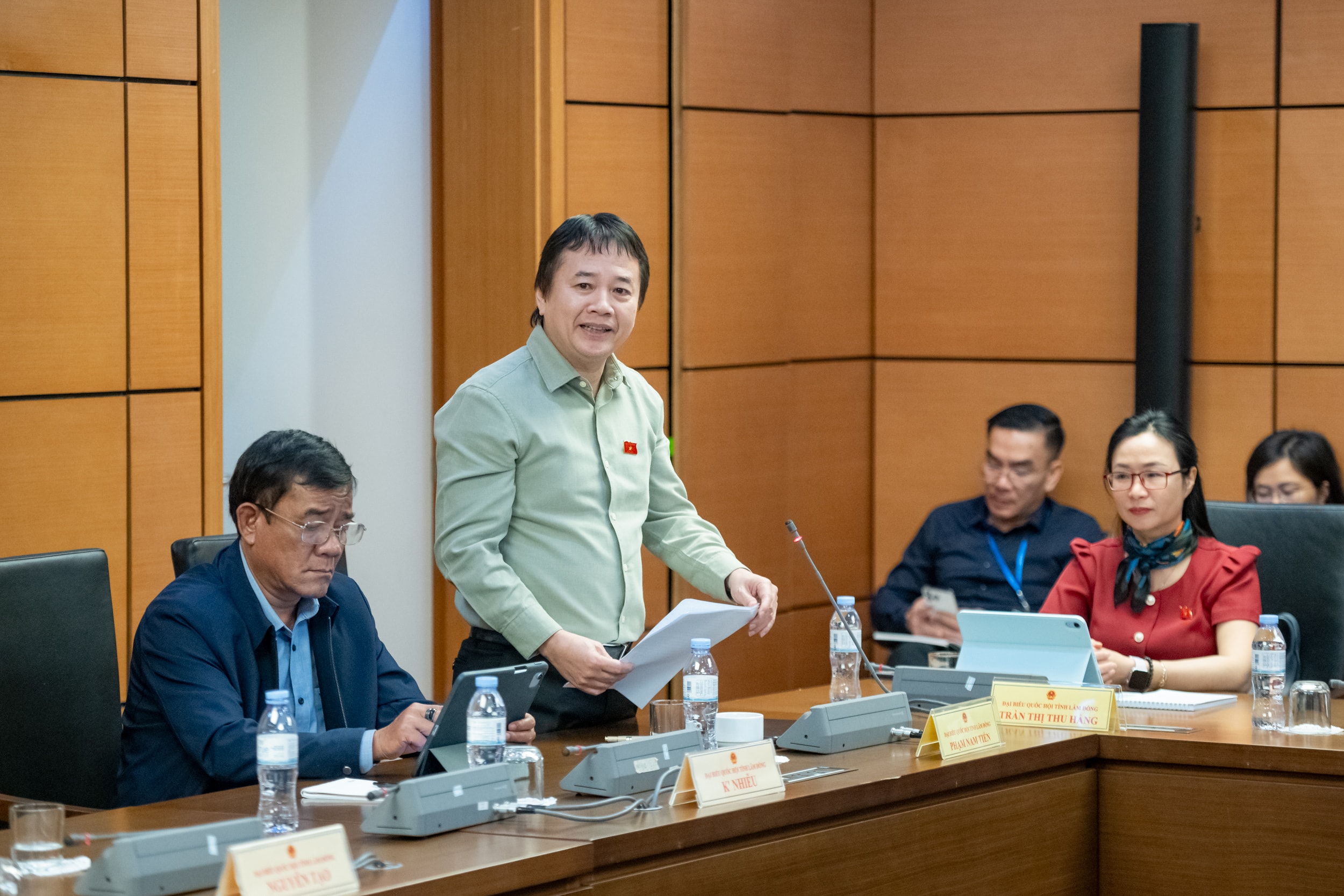
Delegates highly appreciated some innovative contents, especially the clear distinction between newspapers and magazines, overcoming the situation of “newspaper-magazine conversion” causing confusion among the public and difficulties in management. The draft also decentralizes the management of representative offices and permanent agencies to localities, increasing proactiveness, timely detection and handling of violations at the grassroots level.

According to delegates, the addition of regulations on deputy heads of press agencies is considered necessary, helping to perfect the organizational model and increase transparency in management. The draft also enhances the role of the Vietnam Journalists Association in recommending handling of violations of professional ethics; expanding legal sources of revenue for press agencies; allowing the import of newspapers when qualified; and expanding the scope of program production cooperation, except for the fields of defense, security and foreign affairs... In particular, the draft adds regulations on press activities in cyberspace - an important new point to keep up with the movement of modern media, ensuring effective management, and at the same time creating conditions for the press to develop in line with the digitalization trend.
Regarding the explanation of terms, the delegate suggested not using the phrases "spoken newspaper" and "visual newspaper" but unifying them with "radio" and "television", in line with international practice, facilitating training, cooperation and management of domestic press... In addition, the delegate also said that, in the context of strong technological development, it is necessary to anticipate new types of journalism such as journalism using artificial intelligence (AI), podcasts or multimedia information products so that they can be adjusted promptly by legal regulations.

Some delegates also suggested referring to the Chinese press group model, in which the Central manages the Central agencies, and the local authorities manage the local authorities, helping the press to be both independent and unified in direction. According to this model, 70% of operating costs are provided by the State, helping the press to focus on carrying out propaganda tasks, without being subject to commercialization pressure... However, delegates emphasized: "The Vietnamese press is a revolutionary press, not accepting private press; international references are only aimed at drawing appropriate experiences, ensuring the maintenance of the principles, purposes and nature of the Vietnamese revolutionary press."
Concerned about regulations related to scientific journals, especially in the context of digital transformation, delegate Nguyen Van Hien (Lam Dong) said that some regulations in the draft are still unclear, causing difficulties for the practical activities of scientific journals. Accordingly, the delegate raised 3 issues that need to be clarified: concept, legal status and type of activity.
In terms of concept, the draft Law currently defines a scientific journal as a press product published periodically to announce research results and specialized scientific information. “This understanding is only suitable for printed journals, and does not cover the currently popular type of electronic journals, which can be published flexibly by the hour or by topic. Therefore, it is necessary to adjust the definition to suit the reality of digital transformation,” the delegate emphasized.
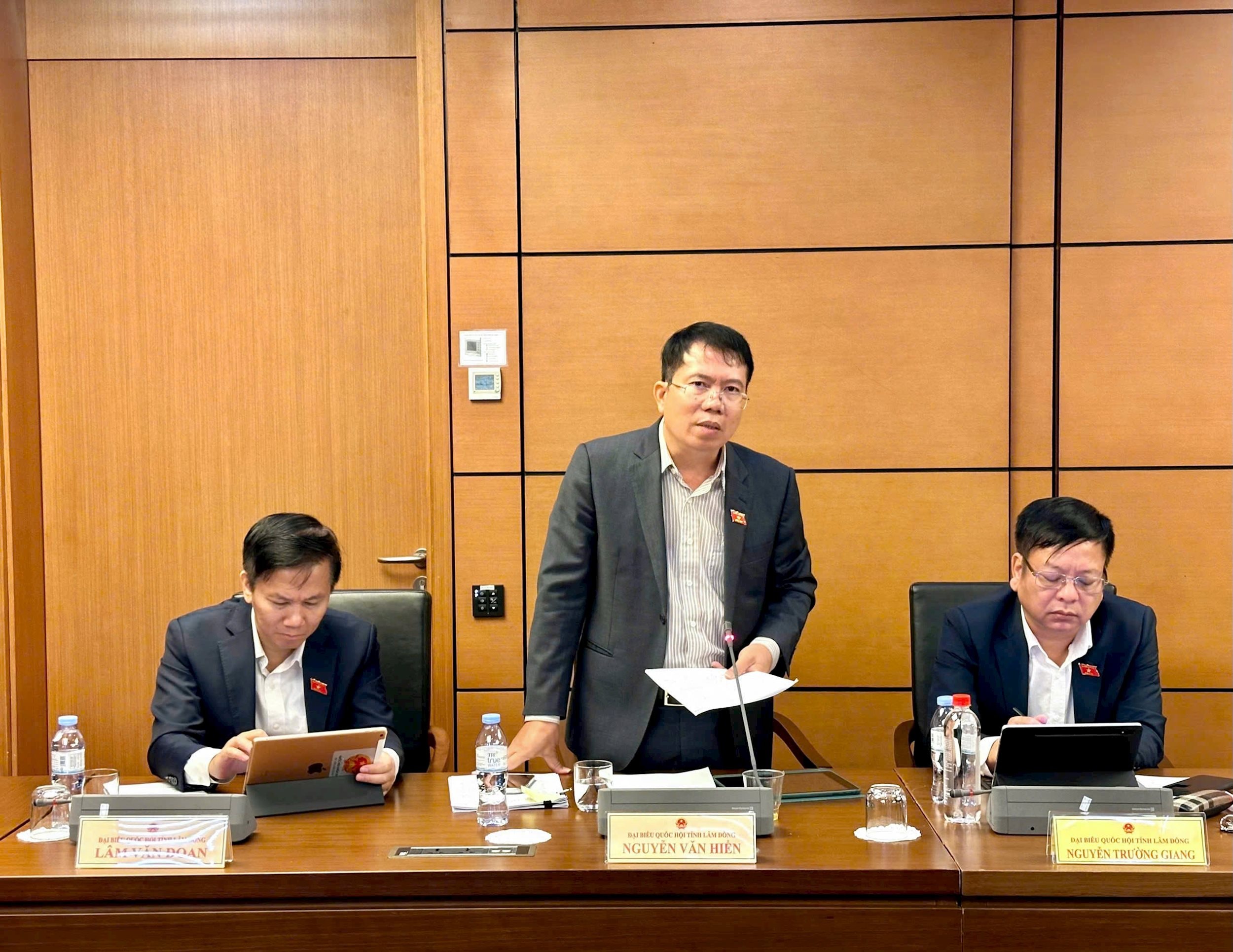
Regarding legal status, Clause 3, Article 16 stipulates that press agencies have legal status, have seals and accounts, while scientific journals are decided by the governing body. According to delegates, this regulation is not transparent and can easily cause confusion when applied. Therefore, it is proposed to separate clearly: press agencies have legal status; while scientific journals have or do not have legal status depending on the decision of the governing body - this regulation is clear, flexible and suitable for practice.
Regarding the type of activities, the delegate pointed out two shortcomings: There is no clear distinction between “public service units” and “public service units”; at the same time, the phrase “activities appropriate to the type of the governing body” has not been specifically explained, which can easily lead to misunderstandings when implementing. On that basis, the delegate requested the drafting agency to clarify for uniform application throughout the system.
Also at the discussion session, delegates agreed that this amendment to the Press Law is an urgent requirement, aiming to perfect the legal framework, improve the effectiveness of state management, and at the same time create conditions for the press to develop professionally, modernly, and humanely, maintaining the principles and nature of Vietnam's revolutionary press in the digital transformation period.
Improving quality and adapting to population aging
During the discussion session in the Group, the National Assembly Deputies of Nghe An and Lam Dong provinces also contributed many opinions on the draft Law on Population. Through studying the draft Law, the Government's Submission and the Review Report of the Committee on Culture and Society, many opinions assessed that the draft Law has strategic significance in institutionalizing Resolution No. 21-NQ/TW of the Central Executive Committee, aiming to shift the policy focus from "family planning" to "population and development"; considering people as both the center and the driving force of sustainable development. This is a fundamental law, directly affecting each family, each locality and all areas of social life.
Delegate Bo Thi Xuan Linh (Lam Dong) said that the scope of the draft has been expanded with many contents such as population size, structure, quality, communication, ensuring conditions for implementing population policy. However, the draft is still not comprehensive, not mentioning the information system, statistics and population database - the foundation of modern governance, deciding the ability to make policies... Therefore, the delegate proposed to add the phrase "statistics, information system and population database"; at the same time, add a separate article in Chapter I regulating the management, sharing, updating, security and connection of population data with the National Population Database, to ensure consistency, avoid overlapping with the Law on Identification, the Law on Electronic Transactions and the Law on Statistics.
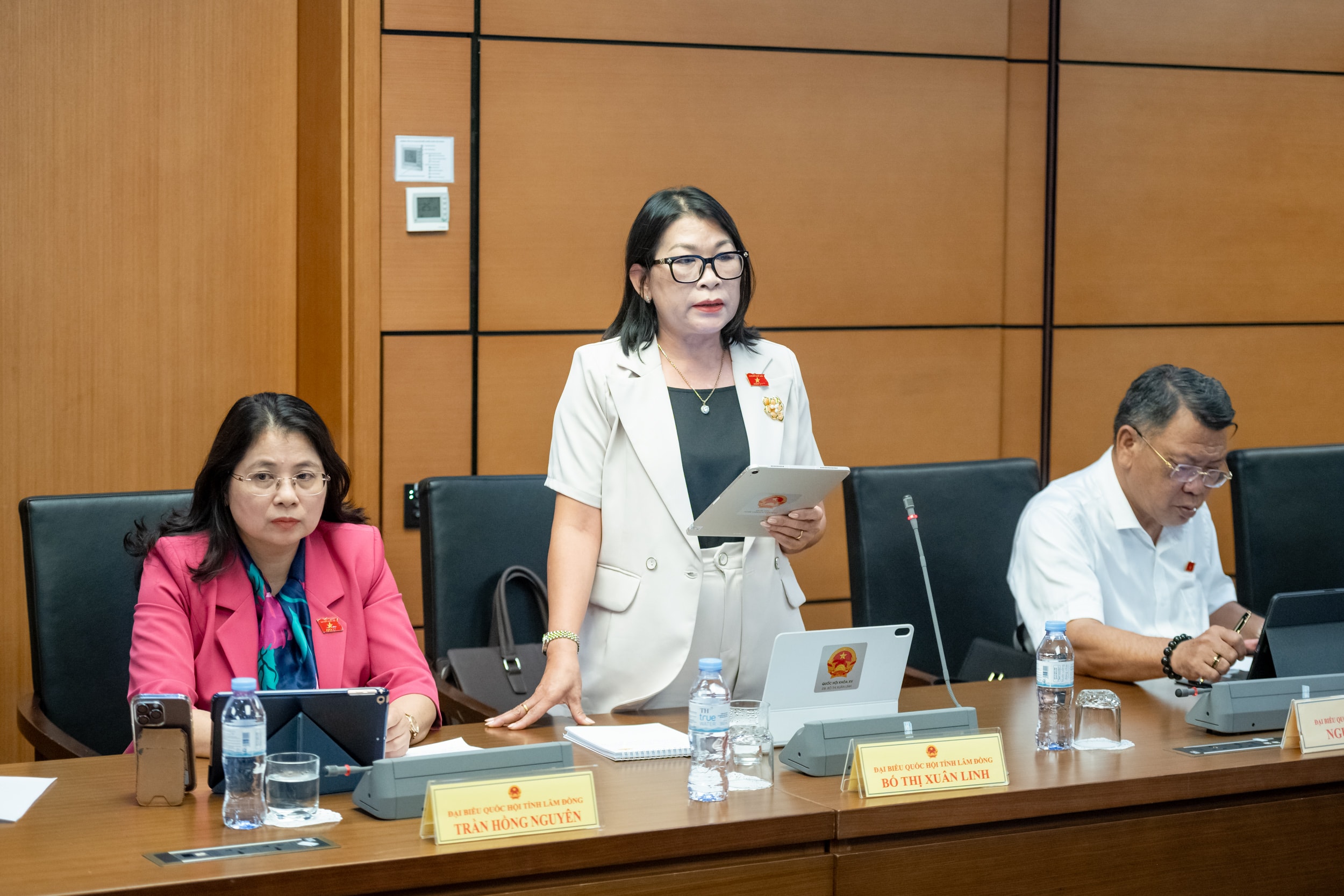
Regarding the explanation of terms in Article 2, the delegate stated that the draft clarified a number of important concepts such as replacement fertility, gender imbalance at birth, population aging, etc. However, it is necessary to define more clearly the terms "human cloning", "population services", and "population quality" to facilitate application and implementation.
Regarding the prohibited acts stipulated in Article 6, the delegates proposed to add two more acts. First, “organizing surrogacy for commercial purposes”, because in reality, there has been a situation of exploiting assisted reproductive technology for profit, potentially posing a risk of child trafficking, exploiting women, violating children’s rights and social ethics. Second, “other prohibited acts as prescribed by law” to ensure comprehensiveness and flexibility in application.
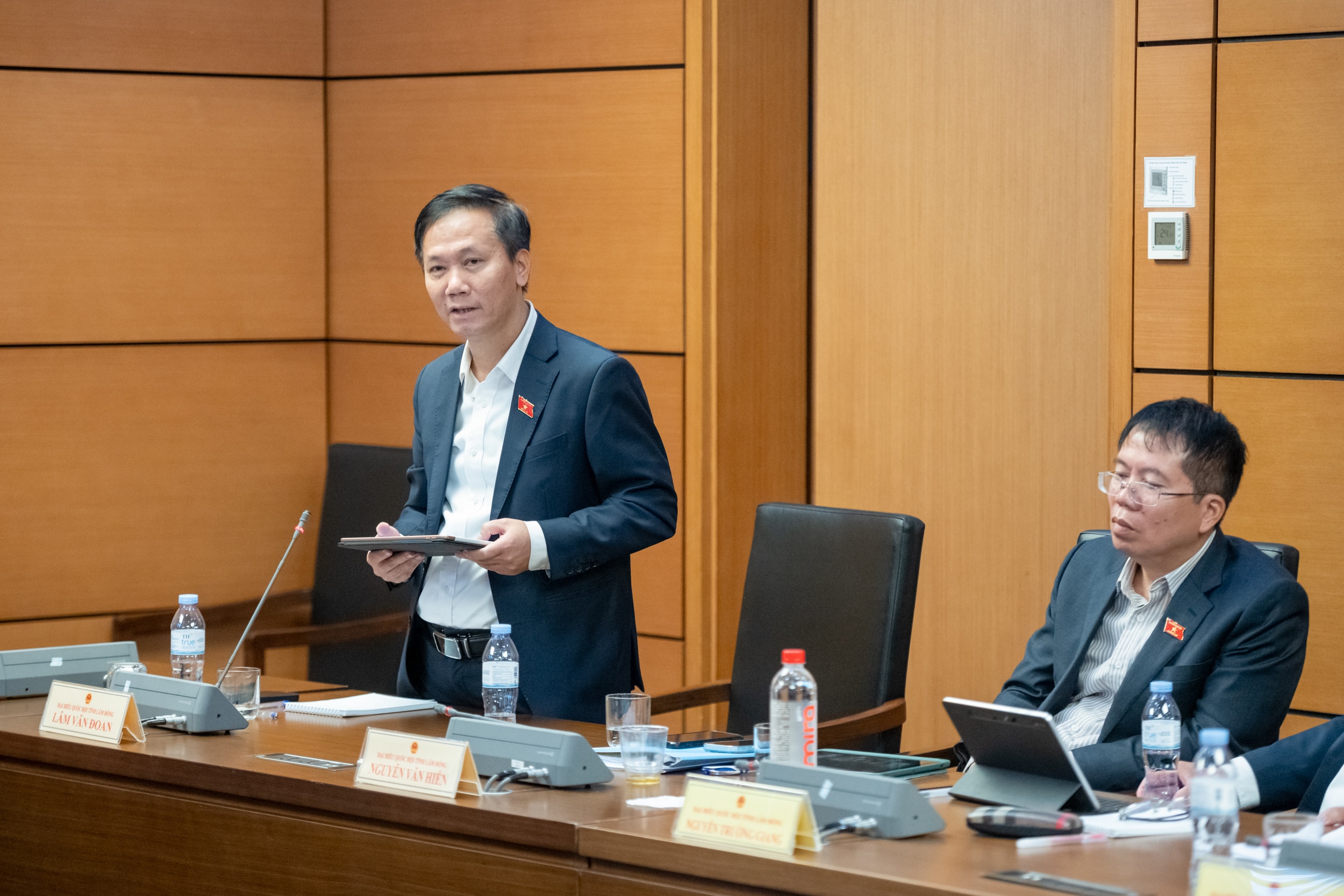
Regarding population size, structure and distribution (Articles 11, 14, 16), delegates highly appreciated the orientation of maintaining a reasonable birth rate, gender balance at birth and population distribution associated with development... However, the content of these articles still lacks specific norms. Therefore, it is recommended to clarify the responsibilities of ministries, branches and localities in formulating, appraising and approving population distribution plans; prescribe specific procedures and authorities; and at the same time, link the content of population distribution with local socio-economic development planning, with criteria such as population density, access to public services, social infrastructure, health care and education so that the policy can be effectively implemented.
Some opinions at the discussion session said that the regulation on maintaining the replacement fertility rate (Article 13) is the key, deciding the feasibility of the new population policy. The draft has correctly identified the reality of low fertility rates in some localities and initially proposed groups of solutions to support childbirth. However, current policies still focus on short-term incentives such as cash support, priority for renting or buying social housing, without fundamentally solving the problems of child-rearing costs, working environment and social psychology. Therefore, it is necessary to supplement strategic policies, ensuring that all children born are partially supported by the State in medical costs, education, health care and basic nutrition; strongly develop the public childcare system, and encourage businesses to build kindergartens at the workplace.
Regarding improving population quality (Chapter V), opinions also highly agree with the provisions of the draft, considering this a chapter that clearly reflects the humanistic vision of the Population Law, with contents on counseling, pre-marital health check-ups, prenatal and newborn screening. However, the concept of "population quality" needs to be understood more broadly, including mental and intellectual health... Therefore, it is proposed to add the State's responsibility in improving the physical, intellectual and spiritual health of the people, linked to national target programs on education, health and sports.
The delegate also noted that the scope of the draft law is very broad, related to many other laws such as the Law on Children, the Law on Youth, the Law on Gender Equality, the Law on the Elderly, the Law on Medical Examination and Treatment, the Law on Marriage and Family, etc. A number of other draft laws such as the Law on Digital Transformation, the Law on Education, the Law on Vocational Education, and the Law on Personal Income Tax are being amended and supplemented. Therefore, the drafting agency needs to continue reviewing to ensure the consistency and synchronization of the legal system.
.jpg)
Commenting on integrating population factors into strategies, plans and socio-economic development programs (Article 4), delegate Trinh Thi Tu Anh (Lam Dong) suggested adding factors such as "population quality" and "impact of population fluctuations" such as aging and gender gap, because modern population not only cares about size and structure but also focuses on quality and impact of fluctuations.
Regarding the purpose and requirements in communication, mobilization and population education (Article 7), delegates said that it is necessary to add the phrase "improving population quality" after the phrase "comprehensively and synchronously solving population issues" to emphasize the top priority focus of modern population work.
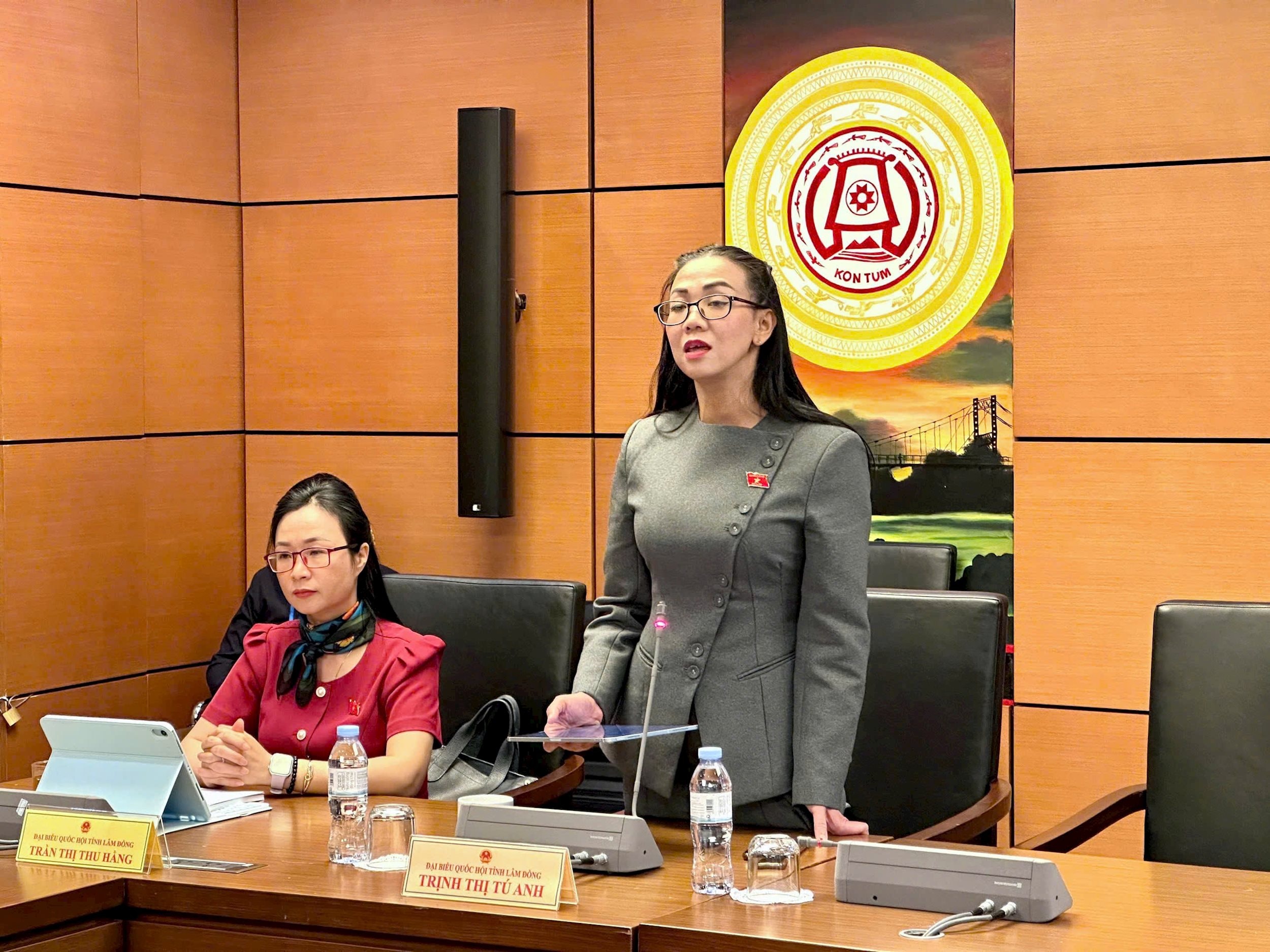
Regarding the rights and obligations of each couple and individual in giving birth (Article 12), the delegate found that the regulation lacks a clear separation between rights and obligations. Clause 1 expresses the right to freely decide on giving birth, while Clause 2 confuses rights and obligations regarding reproductive health protection, reducing clarity. The draft also does not cover all rights such as being consulted, financial support, and obligations such as the responsibility to raise children and ensure children's rights. The delegate suggested that the drafting agency make adjustments in a clearer and easier-to-apply direction.
Regarding maintaining replacement fertility (Article 13), delegates said that it is necessary to add two more contents: financial support, medical or educational priority for families giving birth to girls in areas with high sex ratio at birth; and promoting policies to improve women's economic and social status, including employment support, vocational training, and propaganda to ensure equal inheritance rights.
Regarding support and care for the elderly (Article 17), delegate Trinh Thi Tu Anh proposed adding the content of "priority in providing services to the elderly who are lonely, have chronic diseases, are disabled, or live in remote areas", to ensure social justice and accurately reflect the reality of rapid population aging.
“According to statistics, about 10% of elderly Vietnamese people live alone, especially in rural areas, facing many difficulties in accessing healthcare, care and social support. Adding this regulation demonstrates the humane principle of not leaving anyone behind,” the delegate emphasized.
Source: https://daibieunhandan.vn/hoan-thien-hanh-lang-phap-ly-de-bao-chi-bat-kip-thoi-dai-so-10392633.html


![[Photo] Prime Minister Pham Minh Chinh chairs meeting on railway projects](https://vphoto.vietnam.vn/thumb/1200x675/vietnam/resource/IMAGE/2025/10/23/1761206277171_dsc-9703-jpg.webp)



![[Photo] President Luong Cuong holds talks with South African President Matamela Cyril Ramaphosa](https://vphoto.vietnam.vn/thumb/1200x675/vietnam/resource/IMAGE/2025/10/23/1761221878741_ndo_br_1-8416-jpg.webp)
![[Photo] Prime Minister Pham Minh Chinh meets with South African President Matamela Cyril Ramaphosa](https://vphoto.vietnam.vn/thumb/1200x675/vietnam/resource/IMAGE/2025/10/23/1761226081024_dsc-9845-jpg.webp)
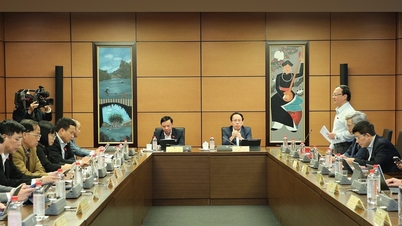
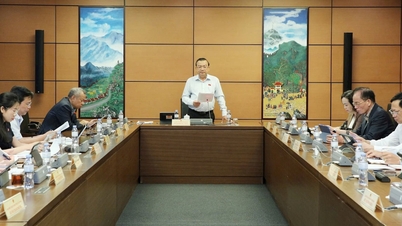
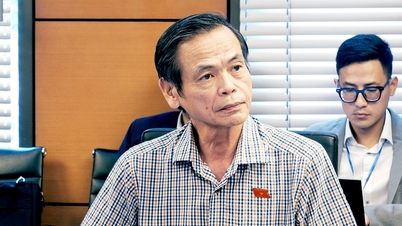

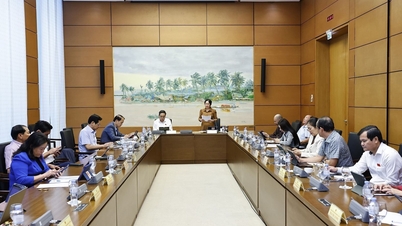

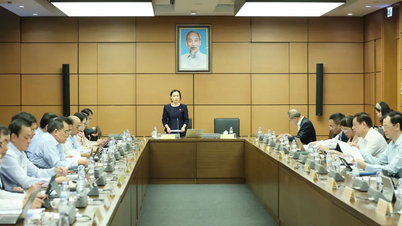



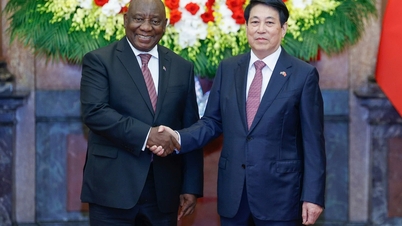



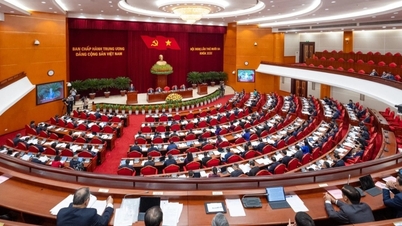
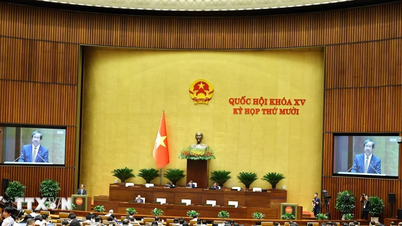

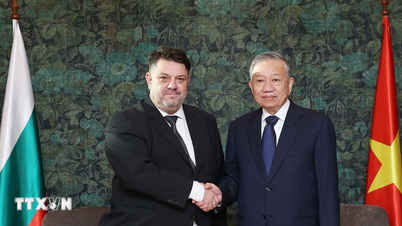
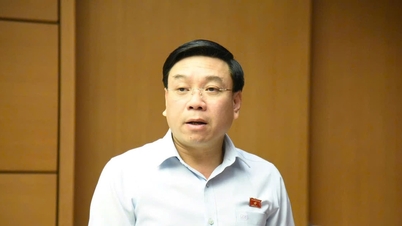




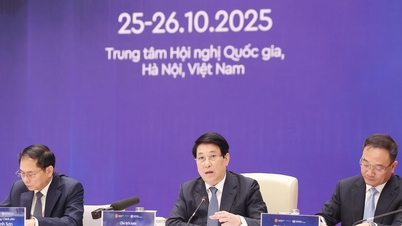
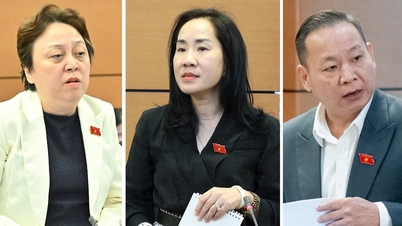
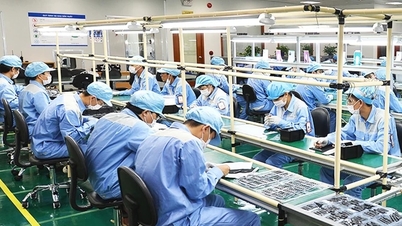
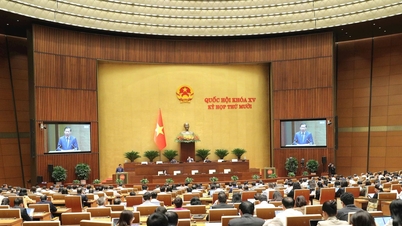
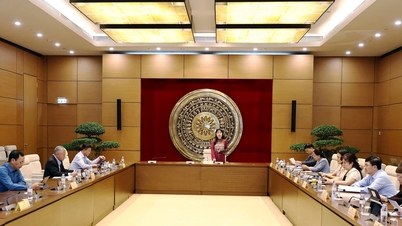
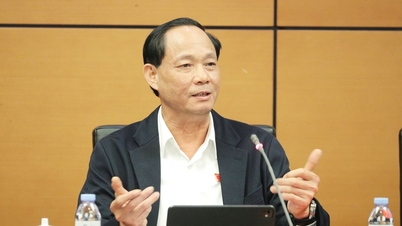




































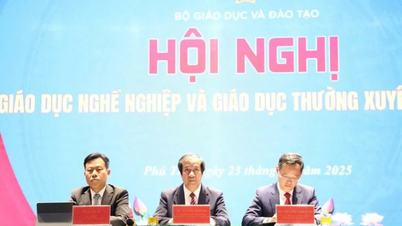


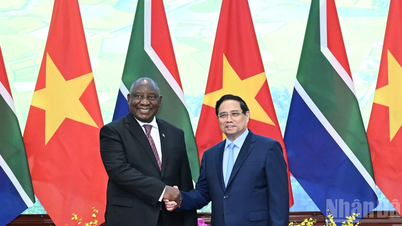





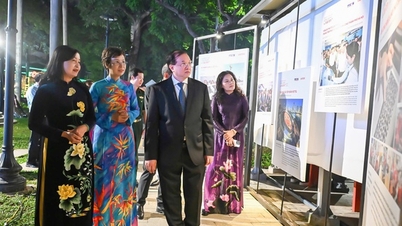




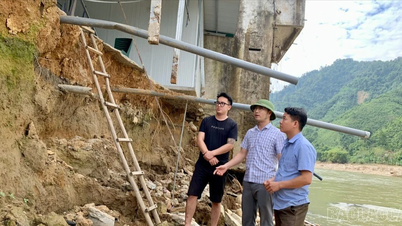

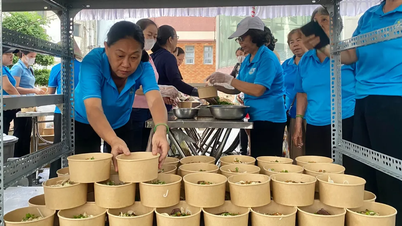


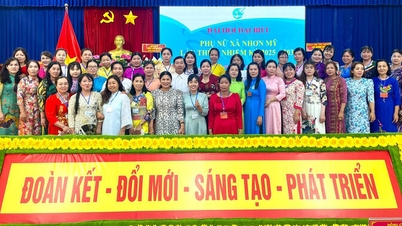
















Comment (0)